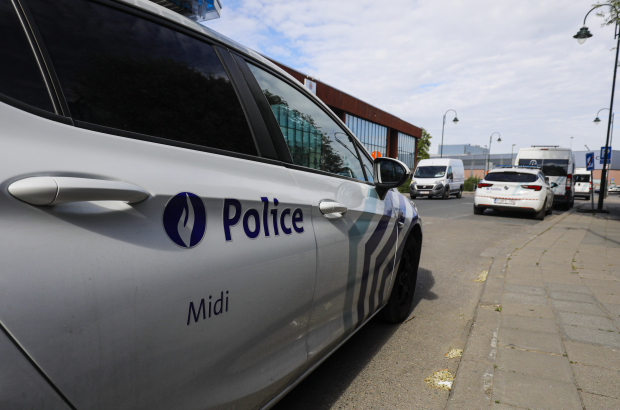- Daily & Weekly newsletters
- Buy & download The Bulletin
- Comment on our articles
Brussels South police officers strike over working hours
Several officers from the Brussels-South police zone called in sick on Monday in protest at working conditions that they have called unacceptable.
The officers cited lack of staff, crippling workloads and extended working hours as reasons for the strike. A new timetable, which came into force at the beginning of April, requires officers of the intervention units to work 12-hour shifts instead of the previous 10.
"Our people are tired and overburdened," said Mario Thys, chairman of the SNPS national union for police and security personnel. A meeting to discuss these grievances has been scheduled with Jurgen De Landsheer, the chief of police for the zone, on Tuesday.
When De Landsheer took the oath a year ago as chief of police of the Brussels South zone, one of the most pressing problems he faced was the lack of officers and staff. Since then, a recruitment drive has begun, but until the dearth in staff is addressed, De Landsheer has relied on a restructuring plan to address the immediate issues.
One of the adjustments in this plan concerns a new system of shifts at the intervention service. These are the officers who are on permanent standby, ready to go to the scene of a crime or incident at a moment’s notice. The increase of their shift pattern from 10 hours to 12 means that there is only a need for two teams on standby instead of three.
Despite many in the service being in favour of the scheme to start with, union representatives issued a warning at the time that there would be problems in the long run. "We immediately warned that such a system entails problems," the SNPS’s Mario Thys. "The social impact is large, but operationally you are also strung out. A 12-hour shift quickly becomes a 16-hour shift. And don't forget the commute."
Not only can an officer be called to take part in an urgent intervention 10 minutes before the end of the shift, therefore prolonging the working day, but there is also a lot of paperwork to be done. "This still needs to be processed after those interventions," Thys explained. "Sometimes an urgent report really can't wait until the day after. The long working days wear down these officers."
After three and a half months of the new shift schedule, a number of officers have had enough. They did not show up for work on Monday. Officially it was because they were sick, but the SNPS confirms that this was a spontaneous protest. "This dissatisfaction comes from deep inside the unit," Thys said.
The unions will sit down with Police Chief De Landsheer and Charles Picqué, the mayor of St. Gilles, who chairs the police council, on Tuesday to find a solution. However, the 12-hour service scheme will continue as planned until October. "But we'd better make adjustments now,” Mario Thys said. “Our people are tired and overstretched, that much is clear."
The SNPS mainly wants guarantees for days off for the officers in the planning. "Because when Joe Biden suddenly comes to Brussels, our officers see their rest days evaporate," added SNPS secretary Stephane Lombaerts. "It's not going to be easy to come to a solution, but we want to go back to 10-hour shifts."
Despite the current situation, the SNPS also understands the choices that De Landsheer is sometimes obliged to make. "The South zone has a large capacity shortage," agrees Mario Thys. "It is not easy to recruit officers these days anyway. And this police force also has a big image problem."



















